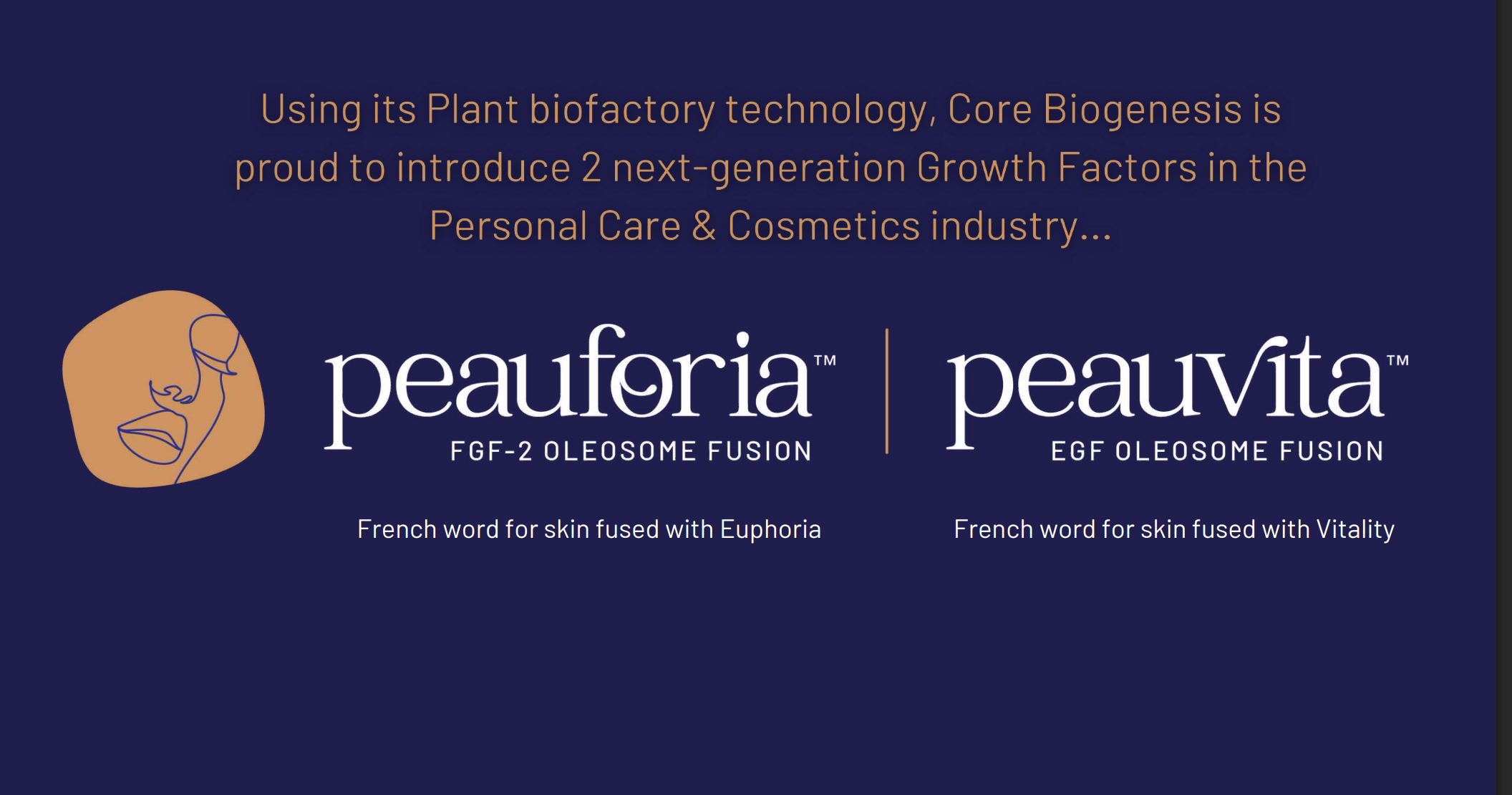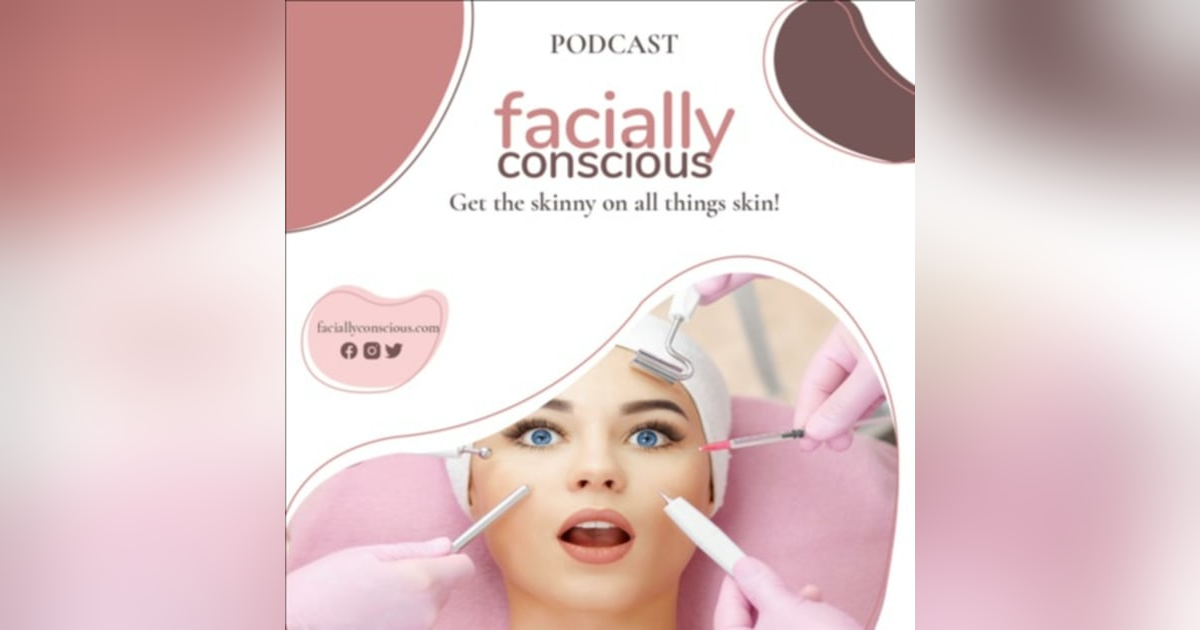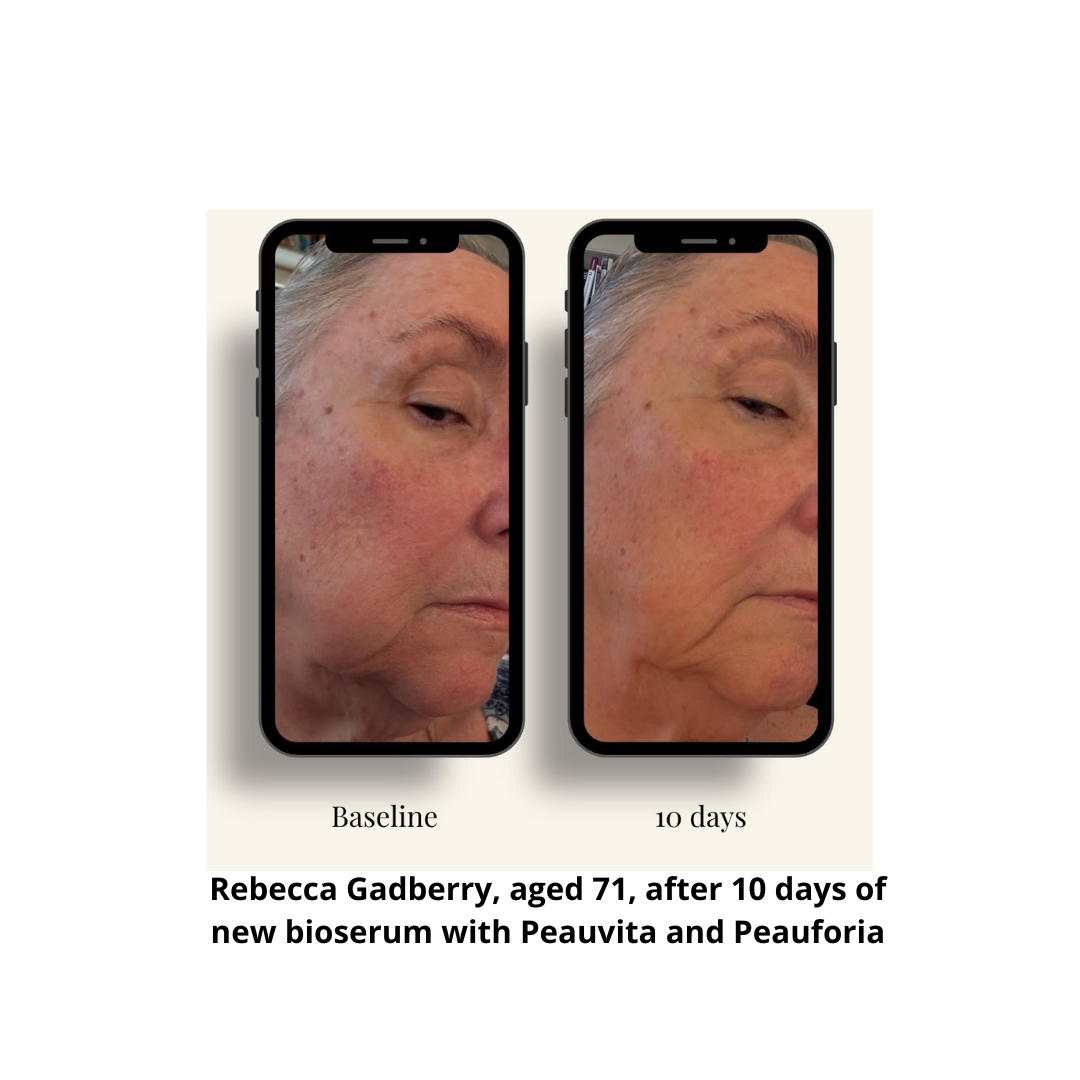Future-Proof Skin: Plant-Powered Growth Factors Outperform Retinol

A Conversation with Biotech Innovator Tony Abboud
The skincare world is buzzing about a new category of actives that promise to deliver retinol-level results without the irritation, instability, or long wait times. At the center of this conversation are plant-derived growth factors—specifically, Core Biogenesis' Peauvita™ and Peauforia™—ingredients that are rewriting the rules of age corrective skincare.
In a recent conversation titled Next-Gen Growth Factors, Facially Conscious co-hosts Trina Renea and Rebecca Gadberry sat down with Tony Abboud, Chief Commercial Officer of Core Biogenesis—a French biotech firm—to unpack the science, the clinical data, and what this breakthrough means for the future of skincare.
The Problem with Traditional Growth Factors
For years, growth factors have been the holy grail of regenerative skincare. EGF (epidermal growth factor) and FGF-2 (fibroblast growth factor-2) are the proteins that tell our skin to repair, regenerate, and renew itself. But here's the catch: by midlife, our natural production of these growth factors can drop by more than 50%. The result? Skin that's slower to heal, less resilient, and visibly weaker in texture, tone, and firmness.
"These are signs of hormonal aging," explains Gadberry, the instructor of cosmetic sciences at UCLA who has spent five decades educating skincare professionals worldwide. "It's not just about wrinkles. It's about the fundamental slowdown in cell communication that happens as we age. Most products on the market today don't address this."
The challenge with growth factors has always been stability and delivery. Traditional growth factor serums—typically derived from yeast, bacteria, or human fibroblast cultures—are notoriously unstable. They degrade quickly when exposed to light, air, or temperature changes. Even worse, they struggle to penetrate the skin's barrier, often remaining on the surface where they can't do much good.
Enter Oleosome Technology
Core Biogenesis solved this problem with an entirely novel approach: fusing growth factors to the membranes of oleosomes, microsized oil spheres found in Camelina sativa seeds.
"Think of oleosomes as nature's delivery trucks," says Abboud. "They're lipid vesicles that naturally protect and transport nutrients. We figured out how to fuse them with biomimetic growth factors—proteins that match the human sequence—creating an ingredient that's 8 to 10 times more stable than conventional growth factors."
But stability is just the beginning. When these oleosome-fused growth factors come into contact with skin, these microscopic bubbles collapse and ferry the proteins deep into the dermis—far deeper than standard growth factors can reach.
"This isn't just about keeping the ingredient stable in the bottle," Abboud explains. "It's about getting it where it needs to go in the skin, at the concentration needed to trigger real biological change."
The Clinical Data That Changes Everything
After four years of research and development, Core Biogenesis put their technology to the ultimate test: a 60-day, double-arm clinical trial comparing their combined serum (Peauvita™ + Peauforia™) against 0.3% retinol, the normal percentage for skin care.
The results were striking:
Wrinkle Reduction: The plant-powered serum reduced wrinkle depth by 25.5% and length by 27.2% after 30 days, compared to retinol's 16.3% and 22.2%. Even more impressive? Results were statistically significant at just 14 days, while retinol took 30 days to show significance.
Skin Smoothness: 77% of participants saw improvement in 30 days (versus 59% with retinol), with visible results as early as 14 days.
Brightness: The serum achieved statistically significant skin tone improvement by day 30. Retinol showed no significant effect on brightness.
"What we're seeing is not just comparable performance to retinol," says Abboud. "We're seeing superior results, faster onset, and—critically—without the irritation, redness, or 'retinol purge' that makes so many people give up on their skincare routine."
A Personal Testimony from a Trusted Voice
Rebecca Gadberry isn't just an educator and formulation expert—she's also a discerning consumer who has tested thousands of ingredients over her career. When she tried Peauvita™ and Peauforia™ herself, the results were immediate and undeniable.
"After just 10 days using these oleosome-delivered growth factors, I saw a global transformation in my own skin," Gadberry shares. "Their ability to deliver fast, visible results without irritation makes them one of the most exciting innovations I've seen in my career."
For someone who has witnessed decades of ingredient trends come and go, that's a powerful endorsement.
Why This Matters for 2026 and Beyond
Growth factors are consistently ranking in the top three skincare trends for 2026 in the US, right alongside exosomes, barrier health, and dermatologist-driven biotech formulations. Consumers are increasingly sophisticated, demanding ingredients that are not only effective but also backed by clinical data, sustainable sourcing, and transparent science.
"Today's skincare lovers want it all: efficacy, speed, and safety," says Abboud. "They're tired of waiting months for results, and they're over ingredients that make their skin freak out."
Core Biogenesis' technology answers that call. The ingredients are grown in closed greenhouses in France using minimal land and water. No harsh chemicals, no fermentation tanks, and full traceability from seed to serum. It's clean biotech with a sustainability story that resonates with both brands and consumers.
The Professional Opportunity
For estheticians, dermatologists, and skincare professionals, oleosome-fused growth factors represent a new category of treatment options. YG Labs, a premier innovation authority in high-performance skin care, has already validated these actives in formulations. They'll be the first to launch a product with Peauvita and Peauforia this November, creating turnkey solutions for brands ready to bring next-generation age-correction to market. Look for these ingredients, either together or separately, in new products throughout next year.
"The excitement around Peauforia™ and Peauvita™ has been incredible," says Evelyn Kirkton, Founder of Beauty Board Consultants and Core Biogenesis sales partner in California. "From innovative indie brands to established contract manufacturers across the West Coast, everyone is looking for clinically proven, biotech-driven actives that deliver retinol-like results—without the irritation or wait time. This is the first—and only—technology I've seen that delivers both."
The Bottom Line
Retinol has ruled anti-aging for decades, and for good reason. But the future belongs to ingredients that can deliver comparable—or better—results without the downsides. Oleosome-fused growth factors represent a genuine leap forward: sustainably sourced, plant-based, clinically proven, fast-acting, and gentle enough for even sensitive skin.
"The world is changing and ingredients are getting better," says Renea. "I try to guide everyone towards non-irritating situations for the skin. The more we irritate it, the more we inflame it through aggressive ingredients, which in turn ages us. This technology holds real promise for positive change without irritation."
As Rebecca Gadberry puts it: "This is hormonal aging redefined. We're not just treating symptoms anymore. We're restoring the fundamental cell communication that keeps skin looking and acting young."
For professionals and consumers alike, that's a future worth paying attention to.
Hear the whole episode at https://www.faciallyconscious.com/
Join our Substack” https://faciallyconscious.substack.com/subscribe
To read more from Trina Reneá, join her on Substack










